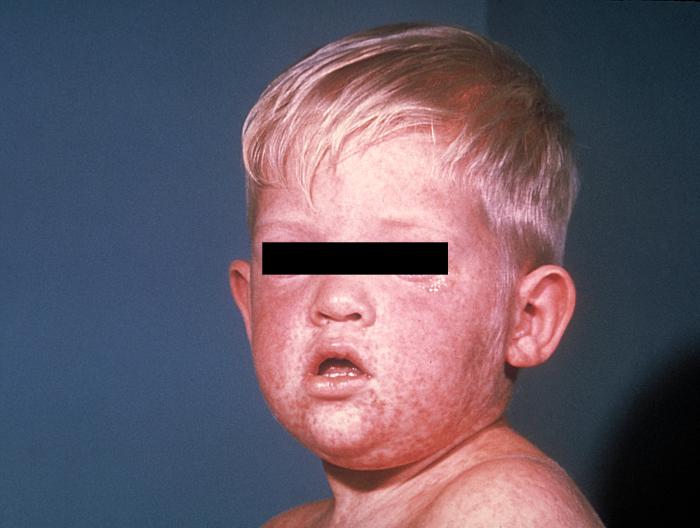State and local health officials in Tennessee are investigating two confirmed positive measles cases in Memphis-area residents. Officials say there is no known connection between the two individuals and the source of the virus has not yet been identified. More cases are anticipated in the Memphis area.

While the investigation is currently centered in Shelby County, all Tennesseans should have heightened awareness about measles and its symptoms. These symptoms may include a blotchy rash, runny nose, fever, aches, watery eyes and white spots in the mouth. Nearly one in three patients will develop ear infections, diarrhea or pneumonia.
“Most people in Tennessee are vaccinated against measles and that’s important because it takes a very high vaccination rate to protect vulnerable people like infants and people with weakened immune systems from measles,” said TDH Commissioner John Dreyzehner, MD, MPH. “The measles-mumps-rubella, or MMR vaccine is safe and readily available across Tennessee, and your health care provider can provide guidance for when people should get it. Please, be sure you are up-to date on MMR, and if you or someone you love have measles symptoms, ‘call before you go’ to a health care center to keep others from being exposed. If you have a question about what to do, call your health care provider or local health department.”
“Our staff members are working collaboratively with the Tennessee Department of Health and the Centers for Disease Control and Prevention on this investigation,” said SCHD Director Alisa Haushalter, DNP, RN. “Additionally, SCHD is working to identify any individuals who have been in contact with the confirmed cases. We urge residents in our community to make sure their vaccinations are up-to-date.”
“Our combined efforts are focused on preventing the spread of illness to others,” said TDH State Epidemiologist Tim Jones, MD. “This appearance of measles is a reminder about the importance of vaccines and how they can particularly protect our most vulnerable, including infants and those with compromised immune systems.”
Measles is a highly contagious viral disease that is spread through the air when a person who is ill with the disease coughs or sneezes. Symptoms begin with a fever, cough, and a runny nose, as well as red and watery eyes. These symptoms are followed by a rash that typically appears first on the face, along the hairline, or behind the ears and spreads to the rest of the body.
People with measles are usually contagious for about nine days, including the four days before their rash starts, the day of rash onset and ending four days after. Complications can include diarrhea, ear infections and pneumonia. Severe complications can be fatal. Infants, pregnant women and people with weakened immune systems are more at risk of complications from measles.
Two doses of the Measles, Mumps, and Rubella (MMR) vaccine are recommended for school-aged children. It’s recommended that children get their first dose of MMR vaccine at 12 to 15 months of age. The second dose of MMR vaccine is usually given at four to six years of age, but may be given sooner.
According to the CDC, as of Apr. 1, four cases of measles have been reported in the US.
Related:
- How contagious is measles? Answer: Very
- Follow-up: Measles death in Washington, What is Giant cell pneumonia?


Childhood diseases that were all but wiped out in the US are making a strong, and even more virulent comeback, thanks to the lunatic anti-vacs movement here. I don’t give a damn about foolish people that choose to inflict this unnecessary scourge on their own children, but as they amount to a vector of disease for the rest of us it is well past time for the government to step in and mandate vaccination, and penalties to help pay the costs of treating disease outbreaks that need not have happened. Enough willful ignorance, already!
Were these two individuals who contracted the disease already vaccinated?
Were these two persons who contracted measles already vaccinated?